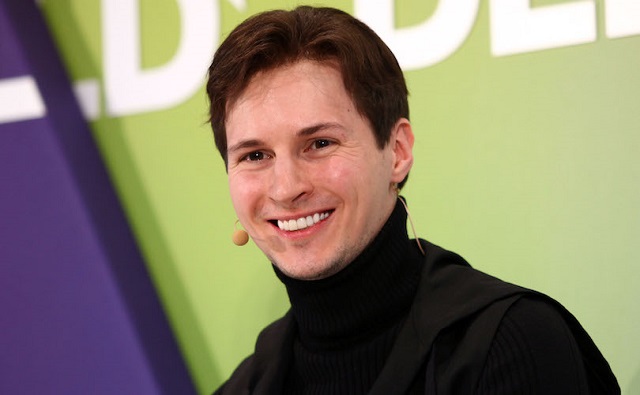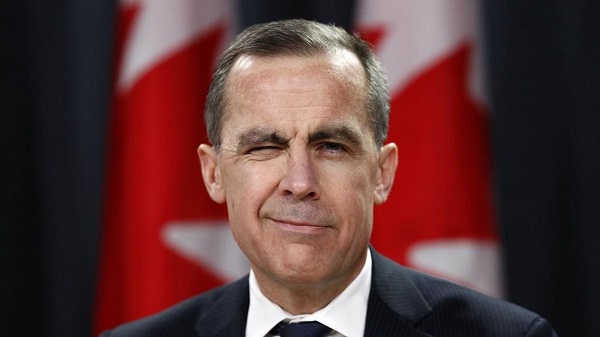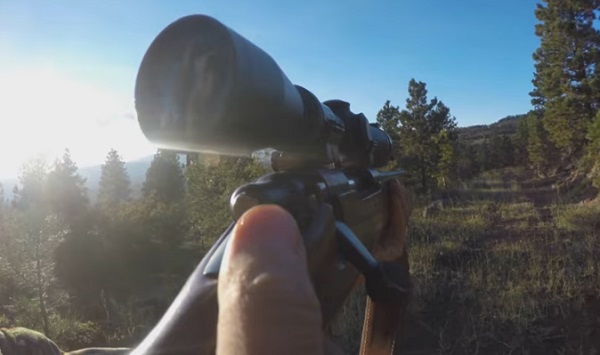Business
BREAKING: Telegram founder Pavel Durov arrested in France

From LifeSiteNews
By Peter Martin
Telegram founder and CEO Pavel Durov was arrested on Saturday at a French airport as part of an investigation into lack of moderation on the popular social media platform, which is known for opposing censorship and protecting users’ privacy.
Pavel Durov, the co-founder and CEO of messaging app Telegram, was arrested at an airport outside of Paris on Saturday, French media reported.
French officers detained Durov at around 8:00 p.m. local time after his private jet landed at Le Bourget Airport. The billionaire entrepreneur had been under an arrest warrant as part of a police investigation in France into alleged lack of moderation and “criminal activity” on Telegram, according to Reuters.
READ: Telegram founder tells Tucker Carlson that US intel agents tried to spy on user messages
Durov, who was born in Russia but holds dual citizenship in France and the United Arab Emirates, had been traveling from Azerbaijan.
The Russian embassy in France said it is taking “immediate” steps to clarify his situation.
Founded in 2013 and based in Dubai, where Durov also lives, Telegram is one of the largest social media platforms in the world, with more than 900 million users. It offers end-to-end encryption in messaging to protect users’ privacy.
Durov left Russia in 2014 after resisting demands by the Russian government to share private data on the social network VK, which he co-founded but later sold.
Elon Musk, the billionaire owner of X, shared the news of Durov’s arrest, saying, “Check out this ad for the First Amendment. It is very convincing.”
Check out this ad for the First Amendment. It is very convincing.
https://t.co/mb4UCSZcgR— Elon Musk (@elonmusk) August 24, 2024
In a recent interview with Tucker Carlson, Durov said that U.S. federal law enforcement had tried to convince a Telegram engineer to change the platform’s software so that law enforcement could read users’ messages.
“Whenever I would go to the U.S., I would have two FBI agents greeting me at the airport, asking questions. One time, I was having my breakfast at 9 a.m., and the FBI showed up at my house that I was renting. And that was quite surprising. And I thought, you know, we’re getting too much attention here,” Durov told Carlson.
“My understanding is that they wanted to establish a relationship, to, in a way control Telegram better,” he continued.
Durov added that Telegram seeks to avoid censorship and noted that it was one of the only major social media platforms that did not remove accounts skeptical of restrictive COVID measures.
Carlson slammed the arrest of Durov, writing on X, “Pavel Durov sits in a French jail tonight, a living warning to any platform owner who refuses to censor the truth at the behest of governments and intel agencies. Darkness is descending fast on the formerly free world.”
He pointed out that while Russia sought to gain control of Telegram, it was ultimately France, “a western country, a Biden administration ally and enthusiastic NATO member,” that detained Durov.
Pavel Durov left Russia when the government tried to control his social media company, Telegram. But in the end, it wasn’t Putin who arrested him for allowing the public to exercise free speech. It was a western country, a Biden administration ally and enthusiastic NATO member,… https://t.co/F83E9GbNHC
— Tucker Carlson (@TuckerCarlson) August 24, 2024
Business
PM Carney’s Astounding Conflicts Are Clearly Exposed. What Will Parliament, The Media, And Voters Do About It?

Will opposition parties force an election? Will the media demand Carney account for his conflicts? Will voters continue to allow Carney and Brookfield to profit from Carney’s leadership as they condemn the US President for doing the same?
NEWS ALERT!!!! https://t.co/HrhXGCyfPq
— Andrew Scheer (@AndrewScheer) October 1, 2025
From Conservative Party Communications
Conservative members of the Ethics Committee released the following statement on its ongoing investigation into Prime Minister Mark Carney’s conflicts of interest:
“Yesterday, the Ethics Committee heard scathing testimony from Canada’s leading ethics and accountability experts on the façade that is Mark Carney’s so-called blind trust – and his conflict of interest screen which is nothing more than a smokescreen.
“Leading ethics and conflict of interest experts told MPs that these measures are entirely insufficient, and that Prime Minister Carney stands to make millions from his investments while keeping them largely hidden from Canadians. The breadth of Carney’s conflicts and potential to benefit financially are entirely unprecedented in federal Canadian politics.
“Carney was involved in structuring Brookfield’s Global Transition Funds, from which he is set to receive carried interest payments potentially worth tens of millions of dollars. Carney knows exactly what assets are in these funds, but he has refused to disclose them. If the funds make money, he makes money – and the decisions he makes as Prime Minister will impact their value.
“Democracy Watch founder Duff Conacher testified that the Conflict of Interest Act allows Carney to ‘secretly profit’ from ‘secret investments’ – dismissing blind trusts as ‘not blind at all’ – and confirmed that Carney knows exactly what is in his blind trust. It is only the public that is blind to the full extent of the Prime Minister’s holdings.
“As currently written, the Act allows the Prime Minister to participate in ‘99% of the decisions’ that impact his private investments. Conacher considers the legislation a ‘sad joke’ – noting that ‘any time [Carney] is making a decision that affects businesses in Canada, he is in a financial conflict of interest.’
“As York University’s Dr. Ian Steadman told the Committee, blind trusts simply ‘aren’t enough’ to prevent public office holders from advancing their personal financial interests.
“Witnesses also slammed the Prime Minister’s conflict of interest screen. The screen is enforced by Carney’s top two aides who serve at his pleasure and are not independent. It lacks any transparency or oversight mechanism, which Conacher noted is a violation of the Act.
“The Ethics Commissioner has the power to strengthen the ethics screen and enforce full transparency today. He has failed to do so. This is deeply troubling, and must be addressed.
“These revelations are just the tip of the iceberg in an ongoing investigation. Conservatives will continue to expose Mark Carney’s unprecedented conflicts of interests and fight to close the loopholes in the Act that the Prime Minister is taking advantage of.”
Alberta
Ottawa’s Firearms Buyback Plan: Federal Government Puts Provincial Authority In Its Sights

From the Frontier Centre for Public Policy
It’s about politics and provinces are right to refuse to play along
Federal Public Safety Minister Gary Anandasangaree’s leaked admission that Ottawa’s firearms buyback is unenforceable was no slip. It exposed the way federal power is deployed for partisan gain while provinces are left to pay the bill.
The leak matters because it exposes a pattern, not an exception. Ottawa drafts policies to suit its politics and expects provinces to carry the weight. Police budgets, university research chairs, hospital systems and housing markets are treated as levers to be pulled from Ottawa. The effects are felt locally, but the decisions are made elsewhere.
Consider the pattern. The Online Harms Act, rejected more than once, is introduced yet again, as if repetition can substitute for consent. Health care dollars are tied to federal strings that reorder provincial systems with no regard for local capacity. Immigration quotas climb at a pace provinces cannot house or school. Environmental rules descend without negotiation, upending years of co-operative planning. Each measure arrives as an edict. Consultation is reduced to announcement.
Resistance has already begun. Saskatchewan moved early, adopting legislation that makes any federal confiscation program subject to provincial authority, including RCMP operations. In Alberta, Premier Danielle Smith has gone further, declaring flatly: “We will not allow police in Alberta to confiscate previously legal firearms. I have directed two of my ministers to relentlessly defend Albertans’ right to lawful and safe possession of firearms and the right to self-defence.”
Even before the introduction of the Sovereignty Act, Tyler Shandro, then Alberta’s justice minister, announced that the province would not use its police or prosecutors to carry out confiscations. Although former premier Jason Kenney opposed a Sovereignty Act, his government likewise refused to act as Ottawa’s enforcer.
Alberta and Saskatchewan have since given themselves legislative tools, Sovereignty Acts, which assert the right of provinces to decline enforcement of federal laws they judge unconstitutional. These statutes formalize existing constitutional powers. Provinces without Sovereignty Acts have also drawn lines. Ontario has signalled its refusal to help enforce Ottawa’s firearms program.
These positions are lawful, rooted in the Constitution’s division of powers, which assigns the administration of justice and policing to the provinces.
This clarity ought to attract others. Manitoba, with one of the highest proportions of licensed hunters in the country, has strong reason to resist Ottawa’s targeting of lawful gun owners. Communities are not made safer by seizing deer rifles from responsible hunters, nor are public services improved by diverting scarce provincial resources into a program that federal ministers concede will not work. Manitoba would do well to follow Alberta and Saskatchewan in defending its jurisdiction, whether through a Sovereignty Act or by refusing to play Ottawa’s game.
The point is practical. Prairie provinces cannot spare rural detachments to seize hunters’ rifles because the Liberal caucus fears losing seats in Montreal. They cannot put their power grids at risk to meet Ottawa’s timelines while households absorb higher bills. Universities cannot be turned into federal policy pilot projects. Provinces exist to govern their own communities, not to absorb the fallout of federal experiments.
The genius of federalism lies in the division of authority, which encourages compromise and minimizes tyrannical imposition. Ottawa governs in its sphere, provinces in theirs. Where the two overlap, cooperation must be negotiated, not imposed. Sovereignty Acts sharpen that principle. They remind Ottawa that partnership is earned, not dictated.
What Anandasangaree’s admission exposed was not only the cynicism of one firearms program. It revealed a method of governing: federal power deployed for partisan gain, with provinces reduced to instruments. That cannot endure. Canada was never meant to be a chain of command. It was built as a contract—one that requires respect for provincial authority.
Provinces that refuse to carry out Ottawa’s politically motivated projects are not weakening Canada; they are enforcing its terms.
Marco Navarro-Genie is vice-president of research at the Frontier Centre for Public Policy and co-author, with Barry Cooper, of Canada’s COVID: The Story of a Pandemic Moral Panic (2023).
-

 Alberta1 day ago
Alberta1 day agoWith no company willing to spearhead a new pipeline under federal restrictions, Alberta takes the lead
-

 National2 days ago
National2 days agoCanada’s birth rate plummets to an all-time low
-

 espionage2 days ago
espionage2 days agoNorth Americans are becoming numb to surveillance.
-

 Alberta1 day ago
Alberta1 day agoHalfway River First Nation makes history with Montney natural gas development deal
-

 Crime2 days ago
Crime2 days agoPierre Poilievre says Christians may be ‘number one’ target of hate violence in Canada
-

 Business1 day ago
Business1 day agoElon Musk announces ‘Grokipedia’ project after Tucker Carlson highlights Wikipedia bias
-

 Alberta1 day ago
Alberta1 day agoTaxpayers: Alberta must scrap its industrial carbon tax
-

 Bruce Dowbiggin1 day ago
Bruce Dowbiggin1 day agoThe McDavid Dilemma: Edmonton Faces Another Big Mess



